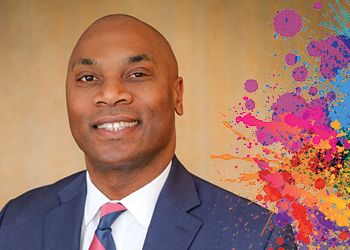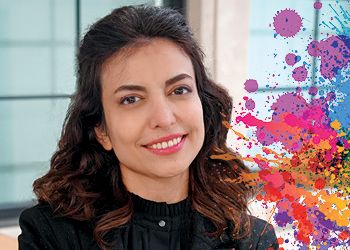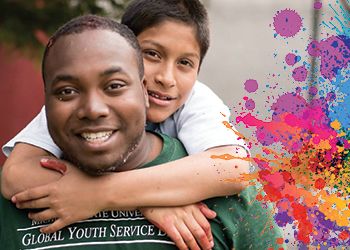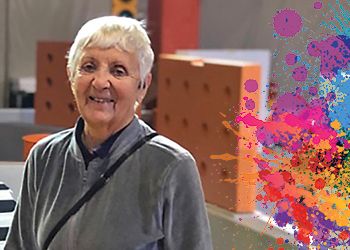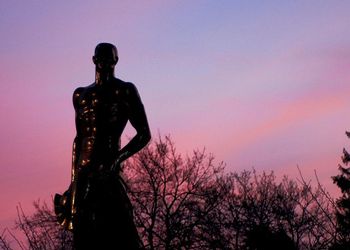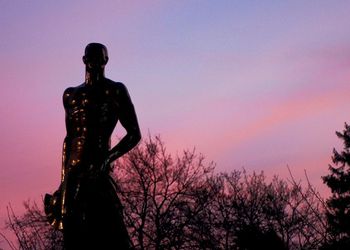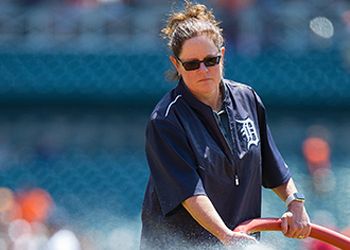All In: Break Through
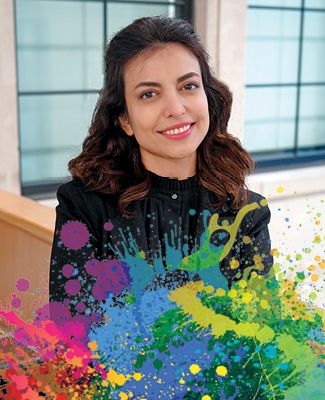
All In: Break Through
The following Spartans have given their all to carve out a space for themselves. In turn, they’re paving the way for others to do the same.
February 1, 2023ASIEH MAHYAR – ORCHESTRA CONDUCTOR
DMA candidate Asieh Mahyar is the assistant conductor of the MSU Symphony Orchestra, the MSU Concert Orchestra, the Musique 21 Ensemble and MSU Opera.
As a child in Isfahan, Iran, music fascinated me. I listened to classical music, mesmerized by Beethoven and Mozart, in particular. Whenever I spotted a piano, my eyes opened wide. If the chance presented itself, I tinkered, pressing one key and then another. The sounds inspired me to dream.
But that’s where it stopped. Music was not a realistic pursuit, adults told me, including loving parents concerned about my long-term welfare in post-revolution Iran. In high school, I experimented with the tanbur, a traditional string instrument viewed as more acceptable by my parents. The experimentation, however, only left me wanting more. It was an overture, not the main act.
At university in Iran, I studied computer science, something practical, sound and respectable. Even so, I embraced the flexibility of being a student away from home as an invitation to follow my passion for music. I took private vocal lessons and purchased a piano.
Though I worked as a network agent after graduation, music emerged as my foremost priority. Every week for two years, I took a seven-hour bus ride to Tehran, Iran’s cosmopolitan capital, for a day of musical study with the best teachers I could find.
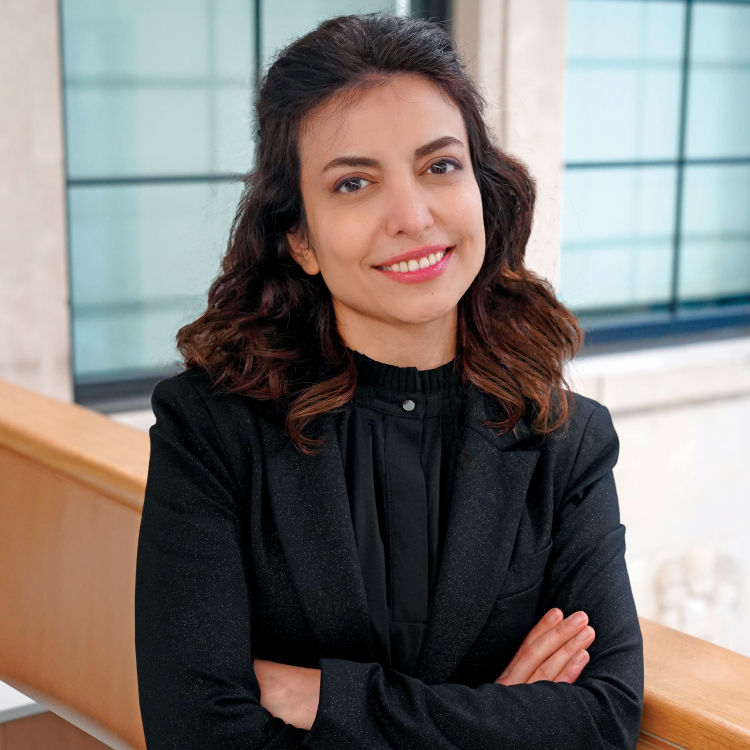
In 2011, I attended a concert in Tehran directed by Loris Tjeknavorian, a famous Iranian-Armenian composer. My first-ever live concert with a conductor, I realized what I had been missing my entire life. Musicians in front of him, the audience behind him, Loris connected with both without a single spoken word. Music was the universal language, and that’s what I wanted.
Fighting with others and sometimes even myself, I dove deeper into musical education. I enrolled in an undergraduate program in choral conducting at the Komitas State Conservatory of Yerevan in Armenia, which then led to a master’s degree in orchestral conducting at the University of Massachusetts. I came to MSU in 2021, where mentors like Octavio Más-Arocas have further supported my growth.
With each step on this long journey, my self-confidence accelerated. My family noticed, too. Today, I relish calls from my parents asking about a performance.
I believe passion is viral and I believe people—from the beginning piano students I have taught to fellow musicians to audience members—see my passion for music. My hope is they, too, become inspired to pursue something they love, perhaps something lingering there, under the surface and waiting to break free. This, after all, is how we fill our lives with goodness. This is how we create happiness.
JO MUSE – ADVERTISING TRAILBLAZER
At his namesake firm, Muse Communications, advertising trailblazer Jo Muse, ’72, ushered multicultural advertising into the mainstream.
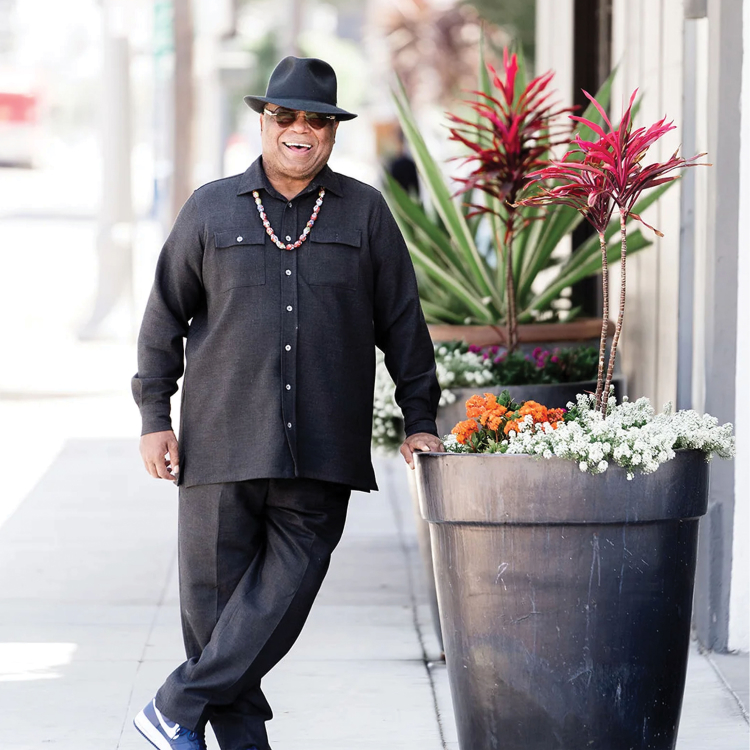
As my MSU graduation approached in 1972, I found myself in an odd place. Though an advertising major, a calling I came to after first considering a career in bioscience, I was actively discouraged from pursuing employment at a traditional advertising agency. At the time, African Americans did not work in general marketing and advertising. Like the Negro Leagues were to Major League Baseball, African Americans seeking employment in advertising had to take their game elsewhere.
After spending the first 15 years of my career in public relations and marketing, I knew fulfilling my desires for a career in advertising would mean striking out on my own. I reminded myself that I didn’t get an advertising education at MSU to exist outside the advertising world. I wanted in—and establishing my own firm provided the ticket.
That’s the basic history behind the founding of Muse Communications in 1988, but there’s more to the story. Wanting to belong myself meant helping others belong as well. A big piece of my agenda at Muse included pursuing multicultural advertising, both inside our office and in the campaigns we crafted.
Though multicultural advertising is rather commonplace today, it was a foreign idea in the late 1980s when nearly all ethnic work existed in silos. Advertising was either Black or Asian or Hispanic. The worlds were disparate, not connected. Such would not be the case at Muse.
Our process, called “The Zone of Commonality,” focused on hiring people from multicultural backgrounds and leaned into casting individuals from multicultural backgrounds as well. We wanted to reflect the end consumers our clients wanted to reach. We then communicated to prospective clients the advantages of having diverse perspectives and faces represented, which included showing research verifying the incredible marketplace opportunity if inclusiveness was at the forefront.
Working on multicultural campaigns for the likes of Honda, Nike and Wells Fargo, we demonstrated the value of more inclusive advertising. Our clients, in fact, recognized it in bottom-line results, which elevated our profile and the value of multicultural advertising as a whole.
Inclusion is a potent force. When people see they belong, they feel empowered to act, re-envision their lives and chase new adventures. Through my own hunger to be included in a field that first captivated me some five decades ago, I became known as the “Father of Multicultural Advertising.” That passion earned me an induction into the American Advertising Federation’s Advertising Hall of Fame in 2022, and to this day, I remain committed to fostering opportunities in advertising for people of color.
LEESLIE HERRERA, COLLEGE OF SOCIAL SCIENCE
Fourth-year criminal justice major Leeslie Herrera builds community for her Spartan cohorts as an active representative of Latine students.
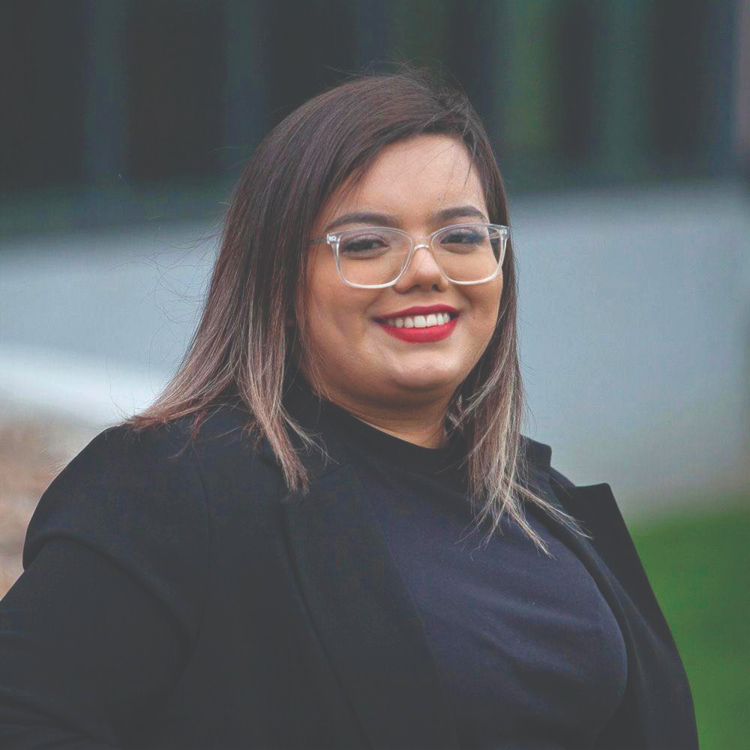
“I am proud of my roots and proud of where I come from. It’s what drives me to do this work.” Herrera is a first-generation, farm working, Latine student from Mission, Texas. She serves as a member of several Latine/Latinx groups, such as Culturas de las Razas Unidas, Chicanx Latinx Association and the College Assistance Migrant Program.
“When I meet new people, I let them know there are many communities around campus that they can be a part of to feel that sense of belonging. We must be able to create that bond with people and form a familia or community.” For Herrera, authenticity is at the heart of a Spartan. “In a world full of identities, we should stay true to ourselves, to our work, to our fights, to our struggles—and also remember our commonalities. By sticking by each
other we help amplify the voices and ideas of all our communities. This type of solidarity can be applied anywhere.”
RYAN PETERS, COLLEGE OF ARTS & LETTERS
Ryan Peters, a third-year student studying linguistics, is the Residence Halls Association representative for People Respecting the Individuality of Students,
or PRISM.
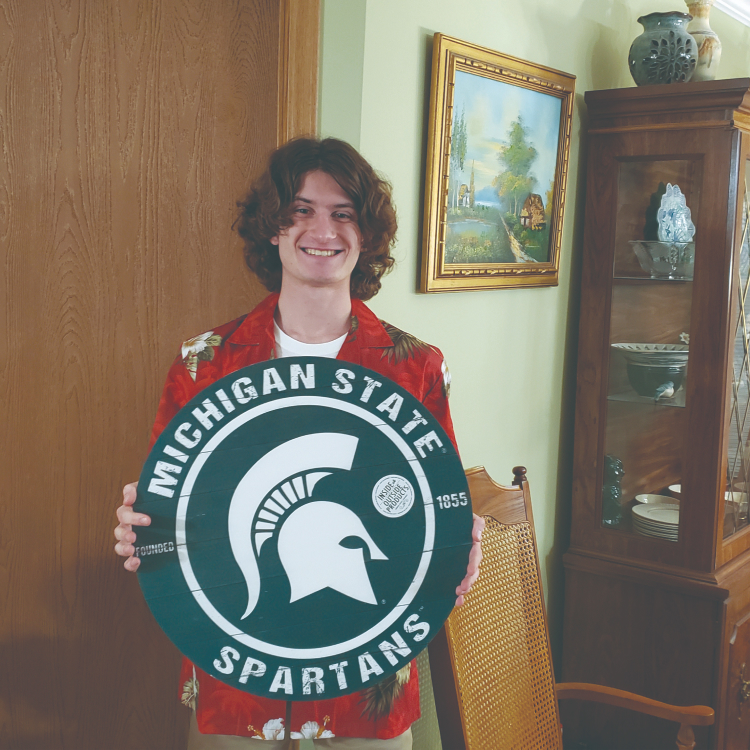
“The queer student organizations on campus were hit hard by the pandemic. I wanted to provide current and future students with something better.” That meant fostering an environment where students could be reminded they aren’t alone. “Having spaces like queer student groups where we’re all in the same boat is really important.” As a member of MSU’s South Neighborhood’s LGBTQA+ Caucus, Peters’ role is to ensure PRISM stays active and well connected.
“At PRISM, all are welcome, and we strive to provide a place where people need not hide their pronouns, whom they love or how they want to dress. Being authentically yourself is when you don’t have to hide anything, and safe community spaces are a reminder of the kind of future we are fighting for: one where we can live our best lives with no fear. The more we can come together, the more we can increase human well-being for all.”
ANNA FOREST – PSYCHOLOGY UNDERGRAD
Macomb, Michigan, native Anna Forest is a senior psychology undergraduate at MSU. Following graduation, Forest hopes to pursue a graduate degree in social work and a career in counseling.
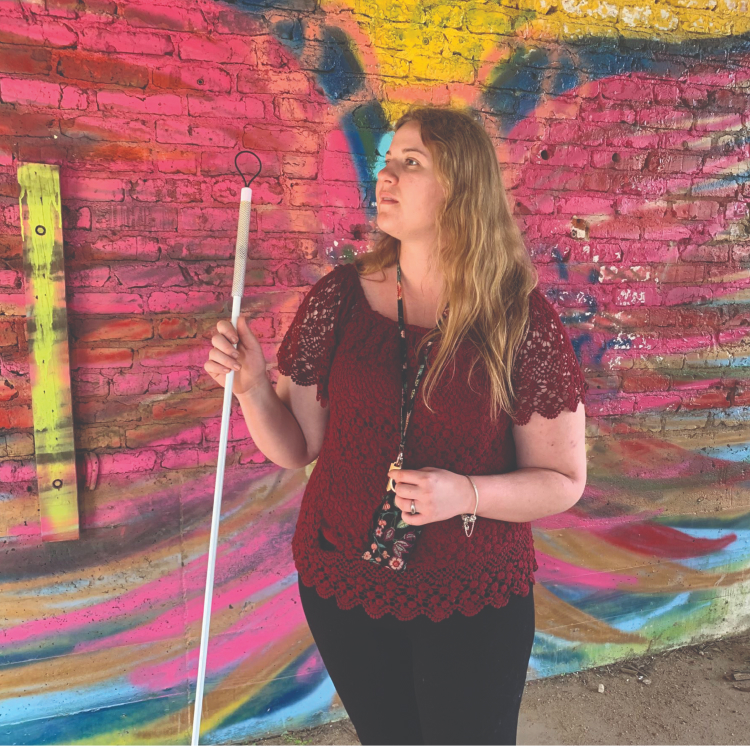
When I went blind suddenly at age 13 following a stroke, I grieved. For a weekend, at least.
After all, losing the vast majority of your vision is exactly that: a loss. But I soon realized I had to adjust and learn how to do things in a different way if I wanted a satisfying life. Thankfully, my parents recognized as much. They set the level of independence high for me, a gift which raised the expectations I had for myself.
After high school, I spent a gap year in Louisiana attending a nine-month residential training program—a blind girl bootcamp, of sorts. The program consisted of completing increasingly difficult tasks and challenges, from learning to walk confidently with a cane to navigating a computer using screen-reading software and keyboard commands. At the end, I cooked a meal for 40 people and successfully completed a drop route. (What’s a drop route, you ask? I was taken in a car, dropped at a random location miles away and charged to find my way home without asking anyone for directions. And, no, Uber wasn’t an option.)
Those nine months in Louisiana led me to discover more about who I am and how I wanted to show up in the world. Fear can control our lives if we let it—and I wasn’t interested in handing fear any control. Beyond learning blindness skills, my experience in Louisiana shifted my own conceptions about my disability and fostered confidence in myself and my independence. Having blind mentors who were incredibly successful and could do things I never would have thought possible—coaching football, teaching woodshop and owning a business among them—expanded the possibilities I saw for myself.
Many label blindness a handicap. Personally, I would prefer people consider it a characteristic. A handicap so often creates a stigma and breeds low expectations, which then stifles one’s ability to persevere, learn, adapt and grow. I want to raise expectations for blind people, including those they have for themselves, so they, too, can feel they belong in this world.
My own journey of self-discovery and having so many great blind mentors inspired me to support other blind individuals, especially children, walking their own journeys to independence. I have worked as a summer camp counselor for disabled youth, helped blind kids learn braille and tutored blind students. The blind leading the blind, it turns out, is a real thing—and it’s more powerful than you might imagine.
Contributing Writer(s): Asieh Mahyar, Jo Muse, Leeslie Herrera, Ryan Peters, Anna Forest


